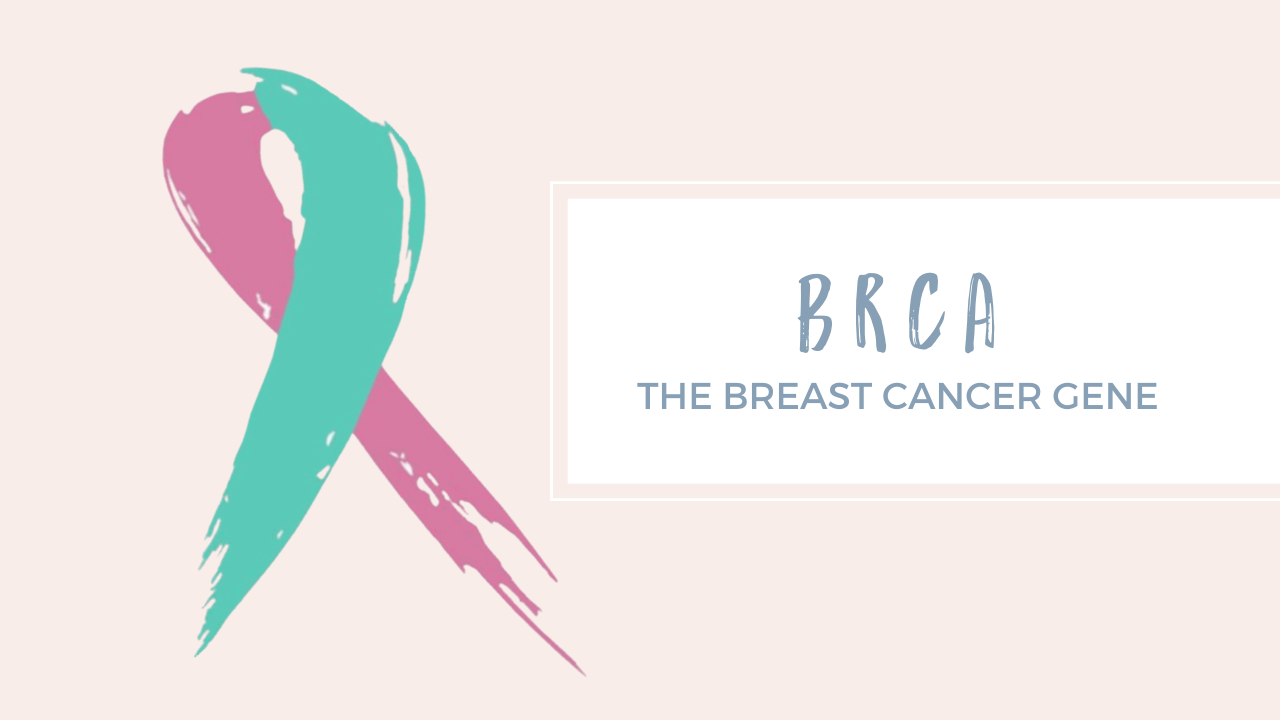BRCA - The Breast Cancer Gene
Sep 27, 2020
Getting a BRCA diagnosis is life altering. In one moment you go from believing that your chance of breast cancer is 1 in 8, to now 1 in 2.
I was diagnosed in July 2018, with both breast cancer and the BRCA2 genetic mutation.
What is a Gene?
Each person’s DNA contains the code used to build the human body and keep it functioning. Genes are the small sections of DNA that code for individual traits. For example, someone with naturally red hair has a gene that causes his or her hair to be red.
All inherited traits are passed down through genes. Each person has two copies of every gene: one gene from each parent. Since each parent passes down exactly half of their genes to each child, any of the parent’s genetic traits has a 50% chance of being passed on to their offspring.
(Both of my children, unfortunately inherited my BRCA2 genetic mutation.)
What is BRCA?
The name “BRCA” is an abbreviation for “BReast CAncer gene.” BRCA1 and BRCA2 are two different genes that have been found to impact a person’s chances of developing breast cancer.
Every human has both the BRCA1 and BRCA2 genes. Despite what their names might suggest, BRCA genes do not cause breast cancer. In fact, these genes normally play a big role in preventing breast cancer. They help repair DNA breaks that can lead to cancer and the uncontrolled growth of tumors. Because of this, the BRCA genes are known as tumor suppressor genes.
However, in some people these tumor suppression genes do not work properly. When a gene becomes altered or broken, it doesn’t function correctly. This is called a gene mutation.
BRCA Mutations
A small percentage of people (about one in 400, or 0.25% of the population) carry mutated BRCA1 or BRCA2 genes. A BRCA mutation occurs when the DNA that makes up the gene becomes damaged in some way.
When a BRCA gene is mutated, it may no longer be effective at repairing broken DNA and helping to prevent breast cancer. Because of this, people , both men and women with a BRCA gene mutation are more likely to develop breast cancer, (and other related cancers - ovarian, melanoma, eye, prostate & pancreatic cancers) and more likely to develop cancer at a younger age. The carrier of the mutated gene can also pass a gene mutation down to his or her offspring.
Women who are diagnosed with breast cancer and have a BRCA1 or BRCA2 mutation often have a family history of breast cancer, ovarian cancer, and other cancers. Still, most people who develop breast cancer did not inherit a genetic mutation linked to breast cancer and have no family history of the disease.
Who is at Risk?
You are substantially more likely to have a genetic mutation linked to breast cancer if:
- You have blood relatives (grandmothers, mother, sisters, aunts) on either your mother's or father's side of the family who had breast cancer diagnosed before age 50.
- There is both breast and ovarian cancer on the same side of the family or in a single individual.
- You have a relative(s) with triple-negative breast cancer.
- There are other cancers in your family in addition to breast, such as prostate, melanoma, pancreatic, stomach, uterine, thyroid, colon, and/or sarcoma.
- Women in your family have had cancer in both breasts.
- You are of Ashkenazi Jewish (Eastern European) heritage.
- You are Black and have been diagnosed with breast cancer at age 35 or younger.
- A man in your family has had breast cancer.
- There is a known abnormal breast cancer gene in your family.
If one family member has a genetic mutation linked to breast cancer, it does not mean that all family members will have it.
The only person in my family with a history of breast cancer was my paternal grandmother. However, my Father had bladder cancer and prostate cancer, my Mum was diagnosed a week before passing with stomach, liver, lung and skull cancers. The genetic counselor that I met with after my breast cancer diagnosis recognized that I may be a high risk. 🙏🏻 I'm incredibly grateful that she did.
The average woman in the United States has about a 1 in 8, or about 12%, risk of developing breast cancer in her lifetime. Women who have a BRCA1 mutation or BRCA2 mutation (or both) can have up to a 72% risk of being diagnosed with breast cancer during their lifetimes. Breast cancers associated with a BRCA1 or BRCA2 mutation tend to develop in younger women and occur more often in both breasts than cancers in women without these genetic mutations.
Men who have a BRCA2 mutation have a higher risk of breast cancer than men who don't -- about 8% by the time they're 80 years old. This is about 80 times greater than average.
Men with a BRCA1 mutation have a slightly higher risk of prostate cancer. Men with a BRCA2 mutation are 7 times more likely than men without the mutation to develop prostate cancer. Other cancer risks, such as cancer of the skin or digestive tract, also may be slightly higher in men with a BRCA1 or BRCA2 mutation.
Preliminary research suggests that a BRCA2 mutation in children and adolescents may be linked to a higher risk of non-Hodgkin lymphoma. Lymphoma is cancer of the lymph system.
You may find these statistics alarming. However, it’s important to note that less than 10% of women diagnosed with breast cancer have a BRCA mutation.
Also, with early detection, the vast majority of breast cancer cases can be successfully treated—and that’s true even for people who have a BRCA1 or BRCA2 mutation.
Further Reading:
Genetic Testing for Breast Cancer.
Reducing Your Risk of Breast Cancer After a BRCA Diagnosis.
Your Monthly Breast Self-Exam Could Save Your Life!
I truly understand the impact of getting diagnosed with this disease AND genetic mutation, plus the devastation of seeing your children diagnosed too. Please know that I am here to support you, as a shoulder to cry on, an ear to listen and a resource for what's next. If you'd like to grab a cup of tea and have a chat (for FREE) simply CLICK HERE TO SCHEDULE OUR TEA TIME CHAT xoxo Karin
Data compiled from https://www.nationalbreastcancer.org/what-is-brca


